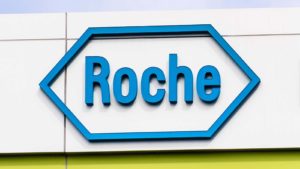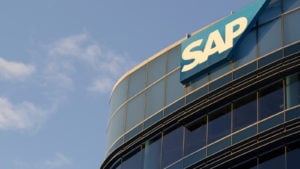“The GRANOLAS represent around a quarter of the STOXX 600’s market cap and equate to the total market capitalization of heavyweight sectors such as Energy, Basic Resources, Financials, and Automobiles,” according to Euro News.
This article will shine a spotlight on these GRANAOLAS stocks, which include companies such as GlaxoSmithKline (OTCMKTS:GLAXF), Roche (OTCMKTS:RHHBY), ASML (OTCMKTS:ASMLY), Nestle (OTCMKTS: NSRGY), Novartis (OTCMKTS:NVS), Novo Nordisk (OTCMKTS:NVO), L’Oreal (OTCMKTS:LRLCY), LVMH (OTCMKTS:LVMUY), AstraZeneca (OTCMKTS:AZN), SAP (OTCMKTS:SAP), and Sanofi (OTCMKTS:SNY).
Occasionally, more companies meet the description to become one of the GRANOLAS stocks, but this piece will focus on seven of the most notable.
So here is what you need to know about these companies and where they are headed.
Roche (RHHBY)

Roche is a Swiss multinational healthcare company headquartered in Basel, Switzerland. It is one of the largest pharmaceutical companies in the world, specializing in pharmaceuticals and diagnostics.
In 2023, the company reported a slight increase in revenue to 63.3 billion Swiss francs, barely surpassing market expectations. However, core operating profit only saw a minor rise to 22.2 billion Swiss francs, slightly below analyst forecasts. But despite these challenges, Roche’s multiple sclerosis drug Ocrevus and hemophilia treatment Hemlibra exceeded market expectations, with sales increases of 17% and 27%, respectively.
Furthermore, despite the downturn in its stock price, Roche plans to increase its dividend to CHF 9.50 per share, marking the 36th consecutive year of dividend increases and underscoring its status as a dividend aristocrat. The recent decline in Roche’s stock price has led some to view it as trading at a discount relative to its historical average on a price-to-earnings (P/E) basis.
ASML (ASMLY)
ASML is a Dutch company that specializes in the development and manufacturing of photolithography equipment used in the semiconductor manufacturing process.
ASML experienced significant performance in Q4 2023, closing at a record high, with shares surging nearly 10%. The company reported a net profit rise of 9% to ‚¬2.0 billion on sales of ‚¬7.2 billion for the fourth quarter, surpassing analyst expectations.
ASML also booked more than ‚¬9 billion in new orders, indicating a strong demand for its semiconductor manufacturing equipment, particularly for its advanced “extreme ultraviolet” (EUV) machines.
Looking ahead, ASML’s overall outlook remains strong, supported by an order backlog of ‚¬35 billion and expectations of a powerful performance in 2025, driven by customer expansion plans across Asia, the United States, and Europe.
ASML has also maintained a conservative outlook for 2024, expecting flat sales because of the new restrictions on sales to China, which could affect up to 15% of its sales in the region €‹ €‹.
Nestle (NSRGY)

Officially known as Nestlé S.A., it is a Swiss multinational food and beverage company headquartered in Vevey, Switzerland.
The company showed resilient performance through the first nine months of 2023, achieving organic growth of 7.8%, driven primarily by pricing adjustments of 8.4%, despite a real internal growth (RIG) of -0.6%.
Sales were negatively impacted by foreign exchange and net acquisitions.
Looking ahead to 2025, the company aims to achieve sustainable mid-single-digit organic sales growth, with an underlying trading operating profit margin range of 17.5% to 18.5%. Nestle has set a target for annual underlying EPS growth between 6% to 10% in constant currency.
L’Oreal (LRLCY)

L’Oreal is a French multinational cosmetics and beauty company headquartered in Clichy, France.
The company demonstrated robust performance in the first half of 2023, showcasing a +13.3% like-for-like sales growth. Significant contributions across its divisions propelled this growth, with the Dermatological Beauty segment experiencing a strong increase of +29.0% like-for-like and +29.5% reported.
Notably, the company’s Consumer Products Division reported its best half-year on record, with a +15.0% like-for-like growth and +13.1% reported growth.
In strategic moves, L’Oreal has been proactive in managing its inventory, notably increasing safety stocks in the U.S. to mitigate supply chain bottlenecks. The company’s inventory levels rose considerably in 2022, a move that, while strategic, could pose risks if demand weakens because of an extended economic downturn €‹ €‹.
AstraZeneca (AZN)

AZN is a multinational pharmaceutical and biotechnology company headquartered in Cambridge, England.
AZN stock is gearing up for growth in 2024, backed by the convincing performance of its blockbuster cancer drugs.
Despite facing a slight hiccup with a lower-than-expected fourth-quarter profit in 2023, which led to a more than 5% drop in shares, the company is optimistic about boosting its revenue and core earnings per share by low double-digit to low teens percentage in 2024.
The company’s presence in China is also notable, with revenue in the region increasing by 16% in the final quarter of 2023 to $1.38 billion, indicating the company’s significant role in the Chinese pharmaceuticals sector. This growth is part of a broader strategy to drive 2024 performance across various geographies.
SAP (SAP)

SAP is a German multinational software corporation that develops enterprise software to manage business operations and customer relations.
For this year, SAP’s strategic focus is on Business AI and operational restructuring. This initiative is part of SAP’s ambition to achieve scalable future revenue growth.
Looking ahead, SAP forecasts significant growth in its cloud revenue, projecting ‚¬17.0 – 17.3 billion, marking a 24% to 27% increase at constant currencies from 2023’s ‚¬13.66 billion. SAP expects cloud and software revenue to increase by 8% to 10% at constant currencies, reaching ‚¬29.0 – 29.5 billion.
Considering this, the company is now increasing its total revenue ambition for continuing operations by nearly ‚¬4 billion, reflecting confidence in accelerating revenue and operating profit growth towards 2025 and beyond.
GlaxoSmithKline (GLAXF)

GlaxoSmithKline is a British multinational pharmaceutical company headquartered in London, United Kingdom.
The company’s total 2023 sales reached £30.3 billion, marking a 5% increase and even a 14% increase when excluding COVID-related sales.
Vaccine sales were notably strong, with a 25% increase, including a 17% increase in Shingrix sales to £3.4 billion and Arexvy sales hitting £1.2 billion.
Looking ahead to 2024, GSK expects turnover growth between 5 to 7%, adjusted operating growth of 7 to 10%, and adjusted EPS growth of 6 to 9%.
The company’s strong pipeline, including the approval of the Arexvy RSV vaccine and new Shingrix data demonstrating 100% efficacy in preventing shingles in adults aged 50+ in China, underpins its longer-term growth outlook.
On the date of publication, Matthew Farley did not have (either directly or indirectly) any positions in the securities mentioned in this article. The opinions expressed are those of the writer, subject to the InvestorPlace.com Publishing Guidelines.
Matthew started writing coverage of the financial markets during the crypto boom of 2017 and was also a team member of several fintech startups. He then started writing about Australian and U.S. equities for various publications. His work has appeared in MarketBeat, FXStreet, Cryptoslate, Seeking Alpha, and the New Scientist magazine, among others.
